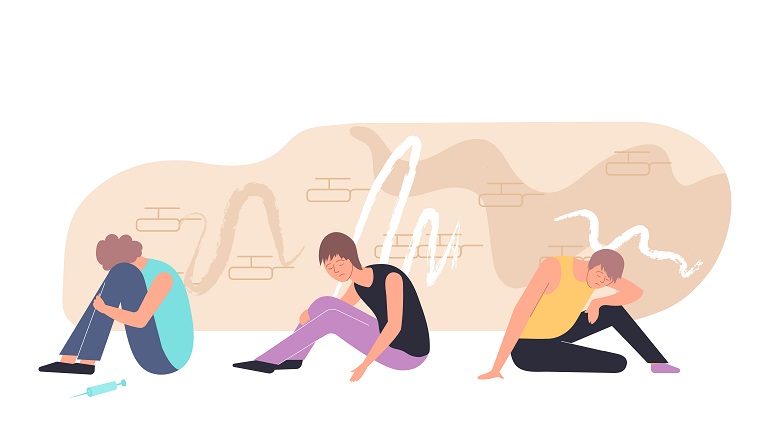Alcohol and drug addiction is a serious problem on college campuses across the country. Drug addiction can lead to major problems in a student’s life, including financial trouble, health issues, and difficulty graduating. That is why, it is essential to educate college students about the effects of drug addiction and how it impacts not only their lives but also those around them. Teachers can play an important role in educating their students about the dangers of drug addiction and helping them make informed choices. The following tips can help you teach your students about drug addiction and its risks:
1. Educate Yourself On The Matter
Be prepared to answer questions. Your students are likely to have a lot of questions about drug addiction. Be prepared to answer them honestly and thoughtfully. If you don’t know the answer, be honest about that too.
Make sure you’re familiar with the facts about drug addiction before attempting to discuss it with your students. This will help ensure that you can answer their questions effectively.
Read more: Why studying MBBS in China is very important?
Stay informed about the latest drug addiction research. In order to be an effective educator on drug addiction, it’s important to stay up-to-date on the latest research. This will help you understand the causes of addiction, as well as current treatment methods.
2. Start The Conversation Early
It is important to talk to your students about drug addiction before they ever start experimenting with drugs or alcohol. This way, they will be better informed about the risks involved and be more likely to make smart choices.
Start by talking about alcohol and other drugs in an open and honest way. Avoid judging or lecturing your students. Instead, try to have an open discussion about the pros and cons of drug use. You may want to share your own experiences (if any) with alcohol.
One of the best ways to educate college students about drug addiction is to start a conversation about it. Use the class time, club meetings, or other forums to open up a dialogue about the causes and effects of drug addiction. You may also want to invite speakers from local treatment centers or support groups to talk to your students about their experiences with addiction.
3. Help Raise Funds For Addiction Treatment
If you know of any fundraising events for local drug addiction treatment centers, encourage your students to get involved. This is a great way to help those in need while also raising awareness about the issue of drug addiction.
Most students often stay in this vicious cycle of drug addiction due to a lack of awareness and knowledge. As a teacher, you can play a pivotal role in raising funds for them or finding a sponsor who can help pay for their treatment.
Remember that addiction is like any other disease – it requires professional help and care to recover from. So by helping them to sponsor their treatment you can increase their chances of getting better and leading a normal life again.
4. Start A Support Group On Your Campus
If you’re looking for a more hands-on approach, then why not start an addiction support group on your campus? This is a great way to get students talking about their experiences with addiction and offer each other advice and support.
You can also start the conversation about the possible treatment options for your students currently struggling with drug abuse. For example, you can suggest an outpatient drug treatment center that allows them to continue their education while seeking help from professionals
It’s also a chance for you to help educate them about the dangers of drug addiction and how to spot the signs of someone who may be struggling. By starting this kind of support group, you can help to create a safe space for students to openly discuss their struggles with addiction.
5. Distribute Educational Materials in Class
There are many excellent educational materials available on the topic of drug addiction. Make sure to distribute these in class so that your students can learn more about the risks and consequences of drug abuse.
There are also many helpful videos, documentaries, and books about drug addiction that can be used as teaching tools. If you have the time, you could even show one of these in class to start a discussion about the issue.
Make sure to stress the importance of getting help if someone is struggling with addiction. There are many resources available to those who need it, but they have to be willing to seek out help in order to get better.
Remember to be patient and understanding. It may take time for your students to open up about their drug addiction. Let them know that you’re there to support them. If they feel like they can’t talk to you, suggest talking to a counselor or another trusted adult.

